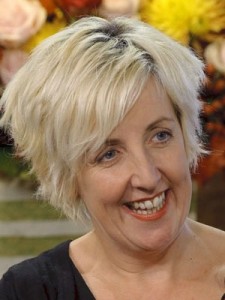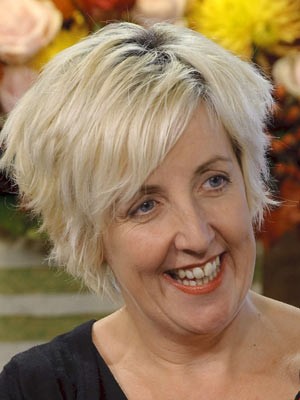
Julie Hesmondhalgh: attended debate.
SDLP Foyle MP Mark Durkan has called for greater action to bring about better awareness, earlier diagnosis and increased research for pancreatic cancer.
His call comes on the back of a backbench Parliamentary debate in Westminster this week.
The debate was called after an e-petition organised by Maggie Watts – whose husband died from pancreatic cancer back in 2009 – reached the necessary 100,000 signatures to trigger a debate in Parliament.
Mrs Watts and more than 50 pancreatic campaigners attended Parliament to listen to the debate and to meet with MPs and others to raise awareness.
The debate was also attended by Julie Hesmondhalgh, whose Coronation Street character Hayley Cropper died after battling pancreatic cancer.
Pancreatic cancer is the fifth biggest cancer killer in the Britain.
Every day, 24 people are diagnosed with the disease and they currently face a chance of survival of less than four per cent, the lowest survival rate of all 21 common cancers.
Chronic late diagnosis results in many patients being diagnosed at a point when the cancer has spread to other parts of their body and when curative surgery is no longer an option.
Despite being responsible for 5.2% of cancer deaths in Britain, only £5.2 million, representing just one percent of the National Cancer Research Institute’s partner organisations’ 2013 site-specific budgets, was spent on pancreatic cancer research.
Speaking after the debate, Mr Durkan said much more needed to be done to improve survival outcomes.
He added: “Pancreatic cancer is a disease that kills far too many people and for which very few treatment options are available.
“In addition to clinical changes within our health services, we also need to see more research into pancreatic cancer.
“In particular, the development of early diagnostic screening techniques – like those developed for bowel or prostate cancer.
“These would radically improve the chance of boosting early diagnosis of the disease.”
Mr Durkan concluded: “In turn this will mean patients are given the best chance of receiving curative surgery.”
Tags:






